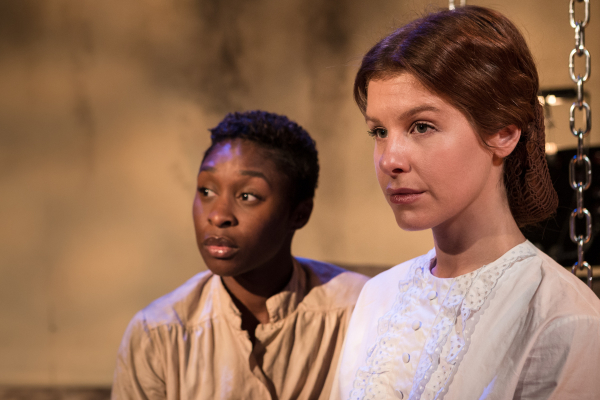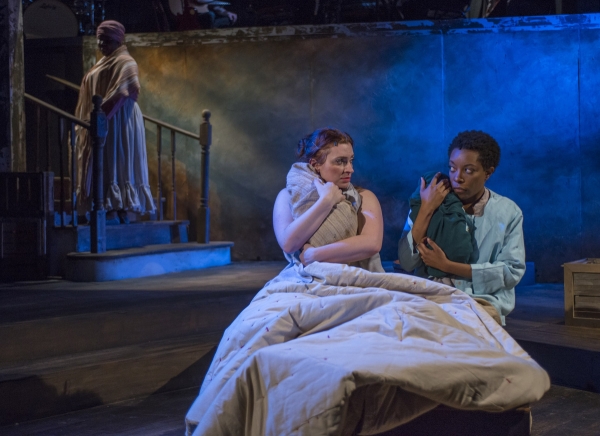Dessa Rose (Trafalgar Studios)

© Scott Rylander
A year ago, before appearing in the undeserved failure of I Can’t Sing! at the Palladium, Cynthia Erivo shook us by the ears as the abused slave girl in The Color Purple at the Menier. And here she is again, as another refugee from the antebellum Deep South, surviving in song, and sounding off big time.
Dessa Rose is a field hand who leads a slave rebellion, kills a rapist in prison, tells her story to a white chronicler and deeply affects the privileged white woman, Ruth (Cassidy Janson), whose own story runs in parallel.
I say "runs" but that’s implying much more dramatic momentum and indeed development than we get in Lynn Ahrens‘ ho-hum book and lyrics and Stephen Flaherty‘s hum-ho music, the usual mix of blues, gospel, cakewalk, waltz and chorale from the authors of Ragtime and Once on this Island.
There’s no argument with the energy and commitment of Andrew Keates‘s cast – the show opens with a tremendous ensemble of bongo-beating defiance on a set hung about with chains – but there is something over-mechanical and inert about the re-working of the novel by Sherley Anne Williams.
All the jumps in the 2005 musical – it dates from the same year as The Color Purple, which was much more skilfully adapted from Alice Walker’s novel by Marsha Norman – are more contrived than dramatic: Dessa and Ruth are switching between youth and old age (and it’s never really clear where we are in this time-scale), recounting their histories to their respective grandchildren in white milk and red blood.
Charleston polite society is represented by such sentiments as "ladies never perspire" and the song of ten petticoats strung across the stage (the nearest we get to a bit of a laugh all evening), while the brutality of the slaves’ struggle explodes in Erivo’s ferocious vocals and the lumbering physicality of her male counterparts; the worlds overlap sensually in the love affair between Ruth and another escaped slave, Nathan, whom Edward Baruwa presents as a regular charmer.
Erivo is a life force whenever she sings, but the show doesn’t allow her the coherence of another full-on star performance. But she’s always a joy, and there are some pleasurable contributions, too, from such distinguished musical theatre folk as Miquel Brown, Sharon Benson, Cameron Leigh (as Ruth’s hyper-genteel mother), Gabriel Mokake and Fela Lufadeju (as Dessa’s first love).













